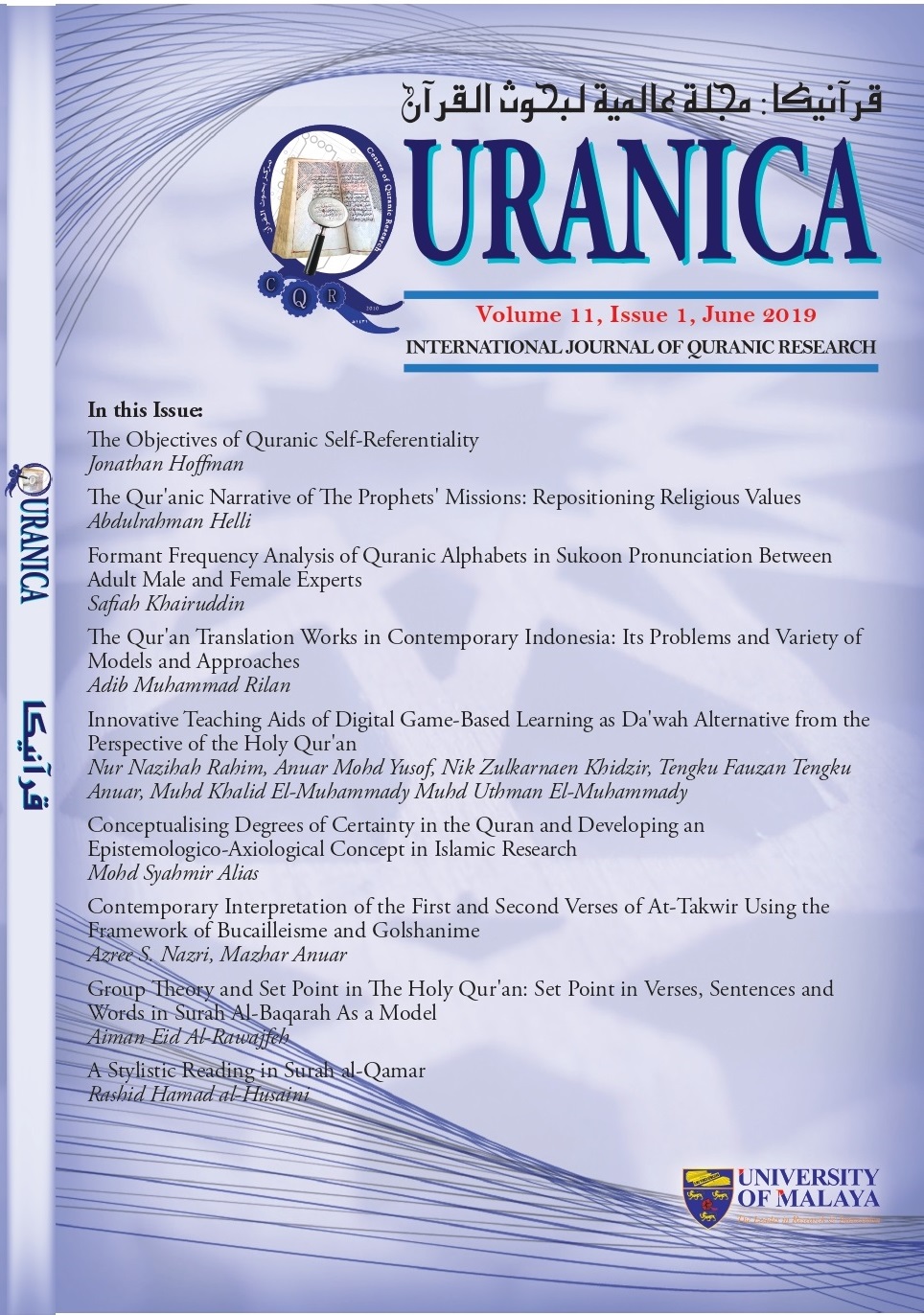Contemporary Interpretation of the First and Second Verses of At-Takwir Using the Framework of Bucailleisme and Golshanime
DOI:
https://doi.org/10.22452/quranica.vol11no1.6Keywords:
Bucailleism, Golashanism, black hole, sun, starAbstract
In the Qur’an, the Sun and stars have their own syllables to show the difference between the two. Surah At-Takwir consists of 29 verses and the word at-Takwir means “overthrow” taken from the first verse of Surah. The first verse implies the process of destruction of the Sun with an “overthrown” phenomenon. In the second verse in the same Surah, the star destruction process is described by the “fall” phenomenon. The frameworks of Golashanism and Bucailleism (I’jazism) are used to analyse the use of the words “overthrow” and “fall” through modern science lens of astro-physics. Various criticism have been given to the frameworks of the though as a framework that are not based on Islamization concept. This article argues that these frameworks have their own unique contributions and values to Islamization concept by providing hypotheses and important information towards Islamization. Both of these frameworks are used in the interpretation model of the earliest two verses of this Surah by laying a general acceptable scientific interpretation in refining Quranic verses without disturbing the syntax of the verses. This study is based on the other verses that are revealed in the Qur’an as well as the results of modern science studies, defining a proper interpretation of the words “overthrow” and “fall” by connecting these two phenomena with a “black hole”. This article does not attempt to confirm the truth of any modern scientific theories by matching those theories to the verses in the Qur’an or vice versa. Yet this article is more interested in the analysis of language use that is very accurate in describing an incident or natural phenomenon in the Qur’an as a study of science towards Islamization.
Downloads
Downloads
Published
Issue
Section
License
Disclaimer
QURANICA makes every effort to ensure the accuracy of all its contents. However, opinions, discussions, views and recommendations are expressed in this journal do not necessarily reflect the official policy of QURANICA or views of its editors or publishers. Therefore, QURANICA and its publishers will not be liable for any controversy may be arisen. The journal reserves the right, at its sole discretion, to change its terms and conditions of publications.
Copyright
It is a condition of publication that manuscript submitted to the journal have not been published, accepted for publication, nor simultaneously submitted for publication elsewhere. By submitting a manuscript, the author(s) agrees that copyright for the article is transferred to the publisher, if and when the manuscript is accepted for publication.






